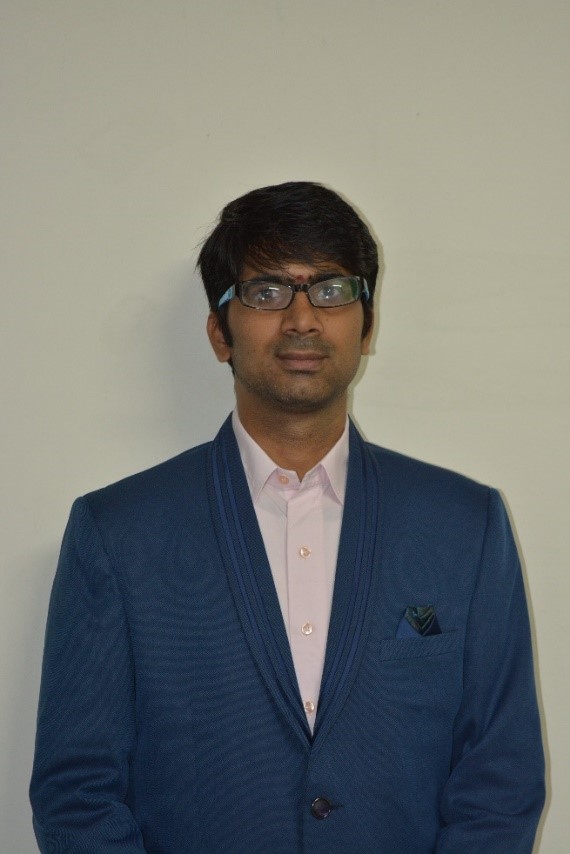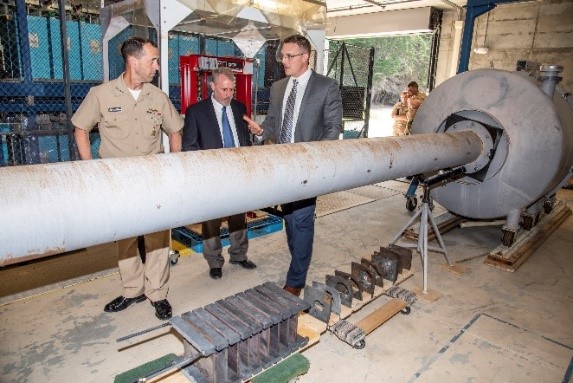Pole Placement for Time-Delayed Systems using Galerkin Approximations
Tuesday, November 16th, 2021
Joint Seminar of the IEEE Tallahassee PES Chapter and FCAAP
Presenter: Shanti Swaroop Kandala, Ph.D., Postdoctoral Associate at the University of Calgary
Time: 3:00 – 4:00 PM, Wednesday, December 1, 2021
Location: AME Seminar Room 106, 2003 Levy Ave, Tallahassee, FL 32310
Refreshments will be served
Abstract
The dynamics of time-delayed systems (TDS) are governed by delay differential equations (DDEs), which are infinite-dimensional and pose computational challenges. The Galerkin approximation method is one of several techniques to obtain the spectrum of DDEs for stability and stabilization studies. In the literature, Galerkin approximations for DDEs have primarily dealt with second-order TDS (second-order Galerkin method), and the formulations have resulted in spurious roots, i.e., roots that are not among the characteristic roots of the DDE. Although these spurious roots do not affect stability studies, they nevertheless add to the complexity and computation time for control and reduced-order modeling studies of DDEs. A refined mathematical model, called the first-order Galerkin method, is proposed to avoid spurious roots, and the subtle differences between the two formulations (second-order and first-order Galerkin methods) are highlighted.
For embedding the boundary conditions in the first-order Galerkin method, a new pseudoinverse-based technique is developed. This method not only gives the exact location of the rightmost root but also, on average, has a higher number of converged roots when compared to the existing Pseudospectral Differencing (PSD) method. The proposed method is combined with an optimization framework to develop a pole-placement technique for DDEs to design closed-loop feedback gains that stabilize TDS. A rotary inverted pendulum system apparatus with inherent sensing delays as well as deliberately introduced time delays are used to experimentally validate the Galerkin approximation-based optimization framework for the pole placement of DDEs.
Brief Bio of Dr. Shanti Swaroop Kandala
Shanti Swaroop Kandala received a Ph.D. degree in Mechanical and Aerospace Engineering from the Indian Institute of Technology Hyderabad, in 2020. He has been a postdoctoral associate at the University of Calgary since January 2020. His research interests include modeling, analysis, and control of dynamical systems, optimization, biomechanics, robotics, cyber-physical systems, data-driven modeling, and geothermal energy.

Technology Challenges from Railgun Pulsed Power Charging Loads
Tuesday, November 9th, 2021
Joint Seminar of the IEEE Tallahassee PES Chapter and FSU-CAPS
Title: Technology Challenges from Railgun Pulsed Power Charging Loads
Presenter: Benjamin McGlasson, Ph.D., Electric Weapons Advisor, Department of Physics, Naval Postgraduate School
Time: 3:00 – 4:00 PM, Tuesday, November 16, 2021
Location: Center for Advanced Power Systems, Research Foundation Building A, Seminar Room 120, 2000 Levy Avenue, Tallahassee, Florida 32310
Refreshments will be served

at the NPS Electric Weapons Research Lab
Screenshots from high-speed video of the muzzle energy record setting experiment (32MJ with 10 kg at 2.5 km/s)
Dr. McGlasson
Abstract
Following the trend toward electrification in many other industries, the US Navy is evolving from mechanical drive to electric drive propulsion systems. This transformation liberates 10’s of MW of power to be redirected to large electrical loads in all but flank speed conditions and enables new systems to be considered for future Naval ship designs, such as directed energy and electric weapons. Integrating these large electrical systems in a way that maintains balanced and clean power throughout the ships electrical bus is an active area of Navy-sponsored research, including at FSU-CAPS. This seminar will review the most extreme electrical load currently being considered for shipboard use, the electromagnetic railgun, and the challenges associated with transient bus loading during charging of the capacitor-based pulsed power technology.
Biography:
Dr. McGlasson leads the NPS Electric Weapons research group at the Naval Postgraduate School (NPS), which recently established the largest railgun experimental facility of any US academic institution. This facility includes an 18 mega-joule pulse forming network and a medium caliber railgun capable of hypersonic launch (Mach 5+). Prior to his assignment to NPS, Ben McGlasson led the research effort for the US Navy Railgun program, the largest S&T program in the Navy, overcoming technical challenges to achieve the highest muzzle energy and bore life ever recorded for railgun launch.
Dr. McGlasson earned his Ph.D. in Applied Physics from the Naval Postgraduate School, Masters of Material Science and Engineering from the University of Virginia, and Bachelor of Science in Mechanical Engineering from Tennessee Technological University. His technical contributions have been recognized by awards from senior Navy leadership as well as peer researchers. These include the Dr. James E. Colvard Award (2015), Assistant Secretary of the Navy (RDA) – Top Navy Scientists and Engineers of the Year Award (2011), Dahlgren Technical Excellence Award – Electromagnetic Railgun Projectile Armature Design (2009), Peer Recognition Award for Teaming Contributions – NIRF IED Defeat Program (2005), and the Award of Merit for Group Achievement – NIRF IED Defeat Program (2004)
Mrs. McGlasson is his secret weapon in life. In addition to enabling his contributions to the US military, she also homeschools their five children, ages 11 through 19, with the oldest successfully launched into military service as a cadet at the United States Air Force Academy.
Clean Energy Technologies –Presentations by Clean Energy Experts
Wednesday, April 21st, 2021
Date: Thursday, April 22
Time: 2 pm to 4 PM
Title: Tallahassee PES Day Event
Zoom Link: https://fsu.zoom.us/j/95583592023
Dr. Omar Faruque
Texas Power Crisis in February 2021: Are renewables to blame?
Dr. Juan Ordonez
Wind Energy -An Overview
Dr. Olugbenga (Moses) Anubi
Control challenges with increasing electrification of automotive powertrain
Dr. Lukas Graber
Electric Aircraft Technologies
Prof. Charalambos Konstantinou
More Power To the Cyber-Secure and Resilient Future with Clean Energy Revolution
Dr. Sastry Pamidi
Hydrogen as Future Fuel